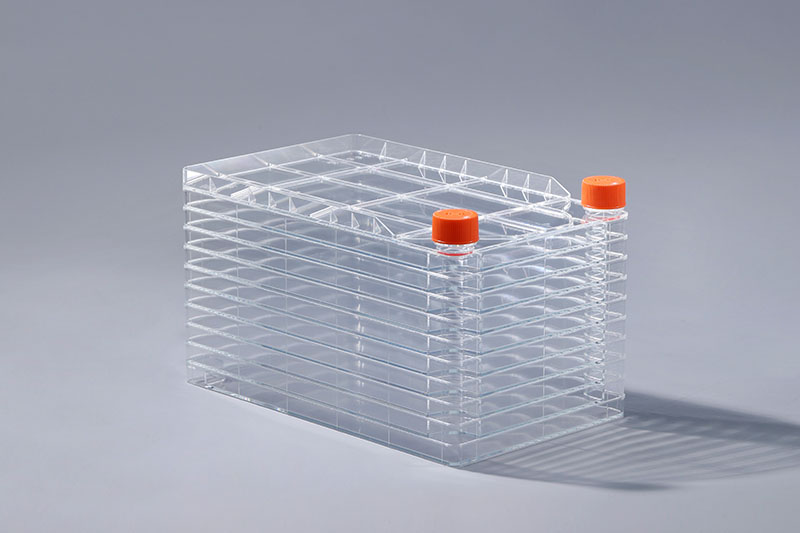세포 배양 기술은 바이오 의약품, 단일 클론 항체 및 세포 치료 분야에서 일반적으로 사용되는 기술입니다. Cell factory는 주로 대규모 세포 배양에 사용됩니다. 세포의 성장은 온도가 매우 중요한 측면인 많은 요인에 의해 영향을 받습니다.
정상적인 상황에서 포유류 및 조류 세포의 시험관 배양에 적합한 온도는 37-38 °C입니다. 너무 높거나 낮은 온도는 세포의 성장에 영향을 미칩니다. 저온을 견디는 세포의 능력은 내열성보다 강합니다. 저온에서는 세포의 대사 활동과 핵 분열이 감소합니다. 온도가 0 ° C보다 낮지 않으면 세포 대사에 영향을 미치지 만 유해한 영향은 없습니다. 세포를 25~35°C에 둘 때 세포는 여전히 생존하고 성장할 수 있지만 속도는 느려집니다. 37 ℃까지 배양 세포는 계속 성장할 수 있습니다.
높은 온도는 세포 배양에 좋지 않습니다. 세포는 39-40°C에서 1시간 동안 배양되며 어느 정도 손상될 수 있지만 여전히 회복될 수 있지만 몇 시간 동안 2°C의 온도 상승을 견디지 못합니다. 41-42°C에서 1시간 동안 세포 손상이 심합니다. 온도가 43°C 이상일 때 대부분의 세포가 사멸되었습니다. 고온은 주로 효소의 불활성화, 지질의 파괴, 핵분열의 파괴, 응고효소의 생성, 세포의 응고, 단백질의 변성을 유발한다. 따라서 세포 공장은 세포를 배양할 때 적절한 온도를 유지하고 고온을 피해야 합니다.
결론적으로 세포 공장의 세포 성장은 여러 요인에 의해 영향을 받으며 온도는 그 중 하나일 뿐입니다. 기타에는 삼투압, 멸균 환경, 가스 및 pH가 포함됩니다.
The FAI climbed 5.9 percent year-on-year in the first 11 months of 2018, quickening from the 5.7-percent growth in Jan-Oct, the National Bureau of Statistics (NBS) said Friday in an online statement.
The key indicator of investment, dubbed a major growth driver, hit the bottom in August and has since started to rebound steadily.
In the face of emerging economic challenges home and abroad, China has stepped up efforts to stabilize investment, in particular rolling out measures to motivate private investors and channel funds into infrastructure.
Friday's data showed private investment, accounting for more than 60 percent of the total FAI, expanded by a brisk 8.7 percent.
NBS spokesperson Mao Shengyong said funds into weak economic links registered rapid increases as investment in environmental protection and agriculture jumped 42 percent and 12.5 percent respectively, much faster than the average.
In breakdown, investment in high-tech and equipment manufacturing remained vigorous with 16.1-percent and 11.6-percent increases respectively in the first 11 months. Infrastructure investment gained 3.7 percent, staying flat. Investment in property development rose 9.7 percent, also unchanged.
 English
English



















































